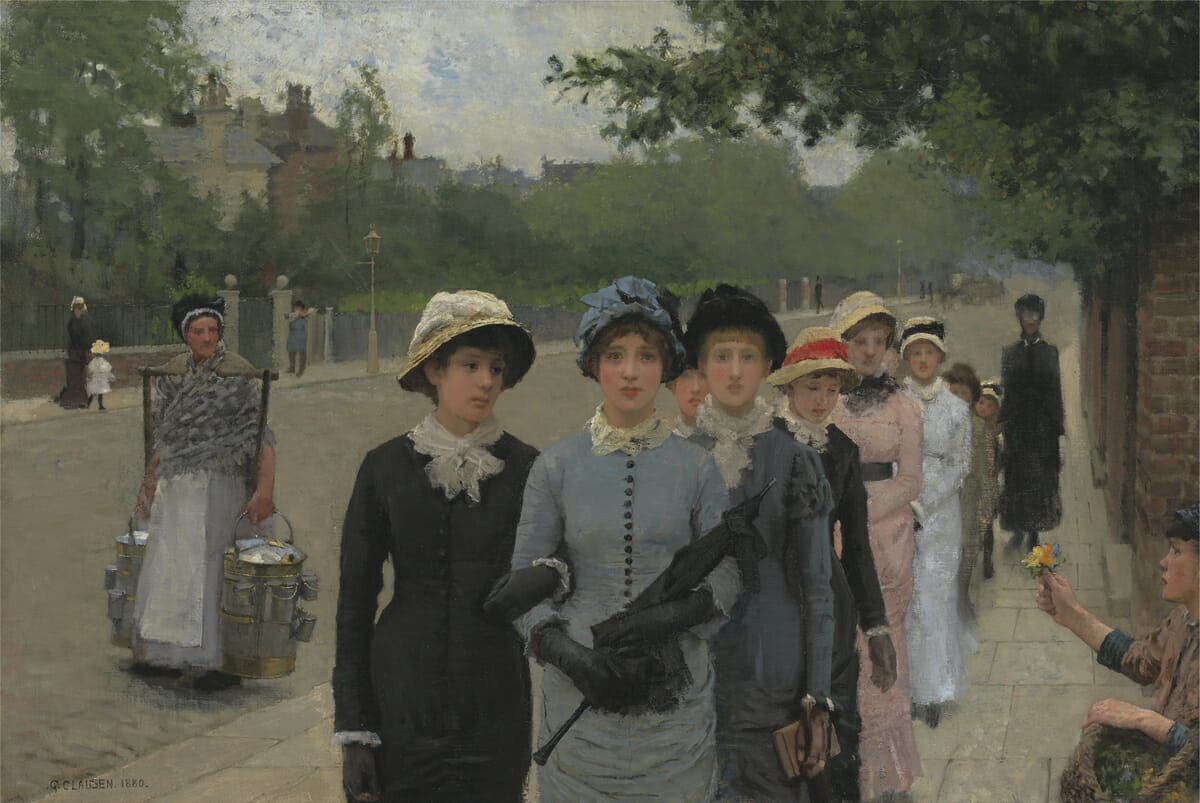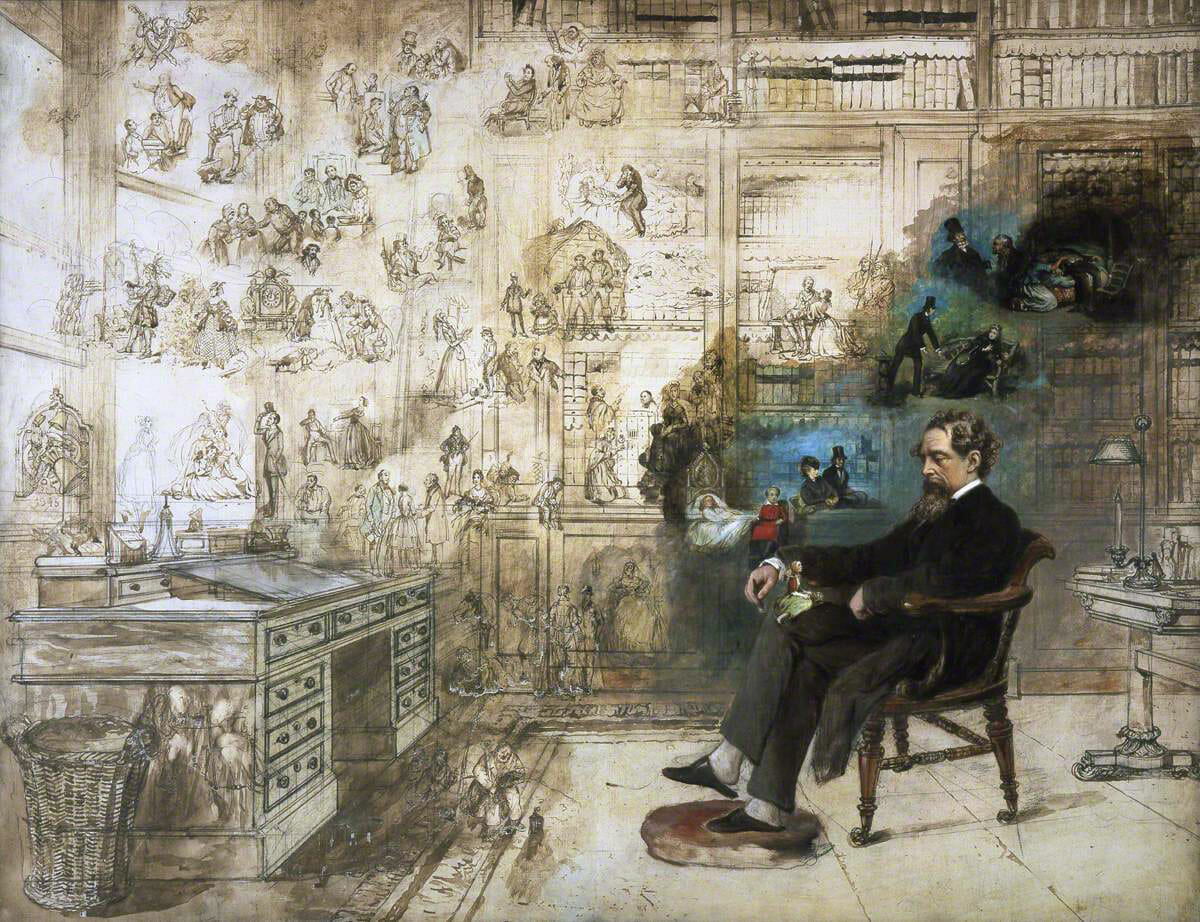
Middlemarch | Victorian sensitivities and modern readings
Author
Year
Format
By
One of the best known Victorian novels, Middlemarch, A Study of Provincial Life was first published between 1871 and 1872 by Mary Anne Evans under the pen name George Eliot. Under this pseudonym, Evans published several successful novels, such as Adam Bede (1859), The Mill on the Floss (1860), Daniel Deronda (1876). Using a male name was not unusual for women writers: the Brontë sisters, for example, published their most important novels with the names of Currer, Ellis, and Acton Bell.
Evans’ style, her ability to portray her characters’ inner thoughts, and her use of the first person narrator inspired authors such as Henry James and Marcel Proust, and caught the attention of Charles Dickens. In a letter dated 1858 and addressed to Eliot, Dickens wrote:
I have observed what seem to me to be such womanly touches, in those moving fictions, that the assurance on the title-page is insufficient to satisfy me, even now. If they originated with no woman, I believe that no man ever before had the art of making himself, mentally, so like a woman, since the world began.
The success of Evans, and of Middlemarch in particular, is enduring. The BBC classified this novel amongst “The Novels That Shaped Our World”, and the publishing house Penguin included it in their “100 must-read classic books” list.
In addition, Middlemarch inspired TV series, such as the 1994 adaptation by film director Anthony Page for the BBC, plays, and even an immersive theatre experience, called The Great Middlemarch Mystery and produced by Dash Art in 2022.
Life in the provinces
The subtitle of the novel, A Study of Provincial Life, gives a first important hint of what the book is about. The setting is that of a fictional provincial town in England, and the plot centres around the lives of some of its inhabitants. Apart from a honeymoon spent in Rome and some brief mentions of other cities such as London and Paris, most of the historical events are filtered through the eyes and impressions of the Middlemarch dwellers. In this sense, Evans’ work reminds one of other Victorian Age classical novels set in the English countryside, such as Thomas Hardy’s Far from the Madding Crowd (1874) or Emily Brontë’s Wuthering Heights (1847).
However, the inhabitants of Middlemarch are far from isolated from big towns and cities. In fact, there is a constant connection with national politics and reforms. The result is that of a realist style but tinged with notes of irony and comedy. Evans portrays the character of Mr Brooke, for instance, as incoherent and foolish, but it is through his attempts at becoming a politician and a newspaper editor that she narrates much of the events leading to the Reform Act of 1832.
The emphasis on themes such as class, personal wealth, and moral values, and the ways in which they are questioned, contributes to making Middlemarch a real Victorian novel. Similarly, love is an important element in the plot, but it is never idealised. Financial struggles, monotony, and misunderstandings characterise the lives of the couples that animate the story.
The many faces of love
At the centre of Middlemarch there are three main couples: Dorothea Brooke and Edward Casaubon, Rosamond Vincy and Tertius Lydgate, Mary Garth and Fred Vincy. Other characters contribute to shaping the plot and the destiny of these couples, such as the young Will Ladislaw or the disgrace of the rich banker Nicholas Bulstrode.
Dorothea, in particular, is the heroine of the story. She is profoundly religious, intelligent, and idealist. However, her enthusiasm and desire to do good are often met with condescension or scorn from the male characters, who dismiss her passions as passing frivolities. She is fascinated by knowledge and is seemingly uninterested in romantic love. Consequently, she agrees to marry Casaubon, a haughty scholar who has devoted his life to writing a “Key to All Mythologies”. His efforts prove ineffectual because, in spite of the loving assistance that Dorothea is eager to provide, he is not able to finish his work.
Dorothea and Casaubon’s story intersects with that of young Will Ladislaw. He is profoundly in love with Dorothea and he alone seems to appreciate her intelligence and authenticity. Eventually, after Casaubon’s death, the two will marry.
Middlemarch through a queer lens
Despite this apparently linear love story, incidents and misunderstandings play a central role in the lives of all three couples. In fact, besides providing a social and historical portrait of Victorian England, Middlemarch also mirrors the complexity of relationships.
The messiness of love is a timeless trope, one sung by poets like Nobel Prize-winner Louise Glück or represented in movies and TV series, such as EastSiders. These contemporary depictions of an age-old feeling are not as far from classical novels as it may seem. Thus, even if the protagonists of Middlemarch are heterosexual couples, Evans’ story has also been reinterpreted in a queer light. It is the case of a vlog-style adaptation, released in 2017 and directed by Rebecca Shoptaw. This web series, titled Middlemarch: The Series, figures a group of art students from Connecticut who are trying to figure out their identities and their place in the world. In an interview for the website Fandomania, Shoptaw writes that Middlemarch is different from other Victorian novels precisely because of its rendition of love:
The novel’s healthier relationships are almost entirely free of the gendered power dynamics that too often shape the relationships in classic novels. Because of this, I was able to flip around several genders and sexualities without drastically changing the feel of the relationships.
Middlemarch offers both a clear picture of 19th-century life in a provincial English town, and a glimpse on timeless themes, such as love, greed, faith, and happiness. Evans’ elegant style, her deep understanding of people’s inner emotions and thoughts, and the ironic and witty twists of her novel, make it an unmissable classic.
Tag
Buy a ☕ for Hypercritic










